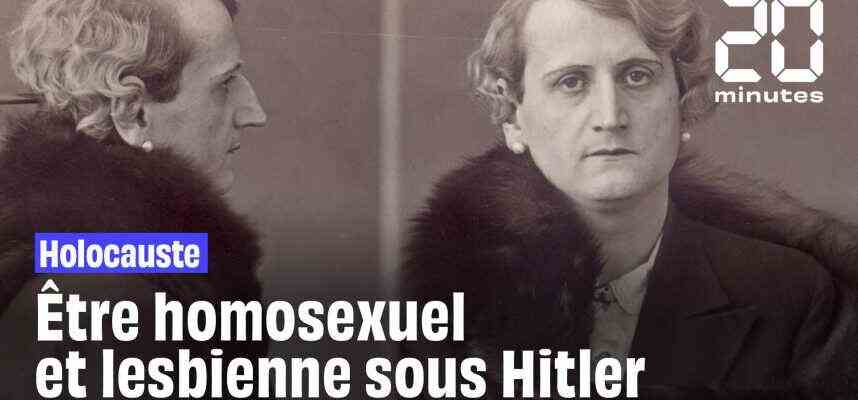Before Hitler came to power, the position of the Nazi Party on homosexuality remained ambiguous for a long time. ” The regime itself valued male relations within units like the SA and SS explains Florence Tamagne, specialist in the history of homosexuality and its representations. Ernst Röhm, head of the SA, was himself a notorious homosexual. “ Nevertheless, an extremely virulent homophobic discourse was carried by Henrich Himmlernuances the historian. He considered homosexuality to be a form of degeneration. The homosexual had no social value. »
Between 5,000 and 15,000 homosexuals deported
When Hitler came to power in February 1933, all ambiguity was removed. In 1935, paragraph 175 of the German Penal Code, condemning sexual relations between men in Germany, is aggravated. From this moment, the condemnations rise up to ten years of prison and can be associated with the sending in concentration camp. This paragraph applied only to nationals of the Reich, ie Germans and inhabitants of annexed territories such as Alsace-Moselle.
Between 5,000 and 15,000 men were deported to concentration camps, where they wore the pink triangle. ” About half of them perished in the campsexplains Florence Tamagne. They were often assigned to disciplinary companies, therefore to the hardest jobs. They may also have been victims of medical experiments supposed to cure them. »
The case of lesbians
Since female homosexuality was not criminalized during the recasting of paragraph 175, the majority of lesbians escaped repression, although this did not prevent discrimination. ” We see that they could lose their jobs. Some were sent to psychiatric hospitals or lost custody of their children, continues Florence Tamagne. Nevertheless, there are known cases of women who were deported as resistance fighters, asocialists, as Jews and as lesbians, lesbianism being an aggravating circumstance. »
A long recognition
In the aftermath of World War II, paragraph 175 remained in force in Germany, making it extremely difficult for victims to testify. The first testimony of a pink triangle, that of the Austrian Heinz Heger, was publicized in 1972. We have to wait for the liberation movements gay and lesbians of the 1970s so that the subject began to be openly discussed and discussed in the general public “, concludes the historian Florence Tamagne.

